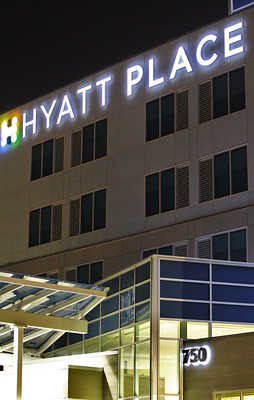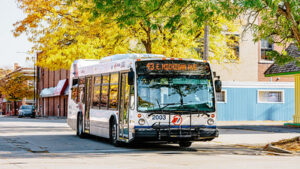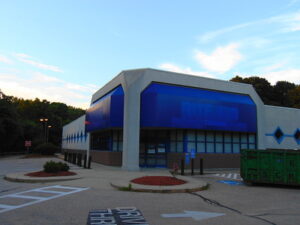Lansing Township has encountered some major financial problems, and it does not seem to have a way out. According to a 2019 ruling by the Michigan Tax Tribunal, the township overvalued Walmart and Sam’s Club properties. The ripple effect of that decision, along with some overly optimistic revenue projections related to revenue-backed bonds have left the township insolvent.
The Walmart ruling, which the Township appealed and lost, requires Lansing Township to reimburse Walmart and Sam’s Club about $1.75M in improperly collected property taxes. Walmart claimed, and the tax tribunal agreed, that completed Walmart and Sam’s Club stores are value-limited for assessment purposes because they are purpose-built. In other words, Walmart knows that no other retailer is going to buy a vacant Walmart or Sam’s Club. The buildings simply have too much space.
Undoubtedly, Walmart leverages its out-sized footprint to keep the tax abatements it receives rolling in. Since no one can make practical use of an old Walmart, townships should want to extend special tax treatments to ensure the buildings remain in use. The ruling – essentially that the size of a Walmart renders it useless to anyone but Walmart – will allow Walmart to repeat this argument throughout the State of Michigan, with similar results.
Unfortunately, the assessment ruling does not affect just Lansing Township. The assessment impacts all other taxing bodies in Ingham County – the county, the Lansing Public Schools, Lansing Community College, etc.
The Walmart ruling is not Lansing Township’s only problem. A shaky tax grab originally established almost 20 years ago has come back to haunt the township. Lansing Township is not a big place. It has fewer than 10,000 residents and an annual budget of just over $4M. At one time, the township collected tax revenues from the automakers, but those facilities closed. The township wanted to replace the lost tax revenue.
Revenue-backed bonds backfire
So, Lansing Township declared some vacant land at US-127 and Lake Lansing Road to be a “downtown.” That declaration enabled the township to create a Downtown Development Authority. DDAs have special taxing authority to siphon off some of the taxes on the “downtown” that would otherwise go to the other tax-collecting bodies in the area.
In addition to taxing powers, DDAs can also issue revenue-backed bonds, which the Lansing Township DDA did. The initial $22M issue financed the construction of a shopping center. Later, it issued an additional $7.5M in “junk” bonds to cover the project cost overruns. It also funded a mixed-use development project called The Heights. The Heights includes two hotels, luxury housing, retail space and restaurants. The township entered a long-term lease for the land on which The Heights sits. Initially, the payments were about $1M per year, scaling to $5M. (Remember, Lansing Township has an annual budget of only about $4M.)
Tenants in the shopping center and the mixed-use development project were supposed to generate sufficient cash to make the lease payments. (Stop me if you have heard this before.)
Well, no surprise, the occupancy rate never materialized according to the township’s projections, so the tax capture from the tenants was not enough to make the lease payments. And now the developer is suing Lansing Township for $14M in missed lease payments over The Heights’s lifetime.
That is on top of the money the township owes Walmart and Sam’s Club for the over-assessment. (The Michigan Tax Tribunal ruled last year, but the township has not yet repaid the over-collection.)
” Say hello to your new financial manager”
Lansing Township officials now face the very real prospect of losing financial control to a state-appointed financial manager. The township already lacks the resources to pay Walmart and Sam’s Club. The tax refund is less than 15% of what it owes the developer.
Lansing Township officials took their revenue-backed bonds to the casino and lost. In the process, they obligated every single resident of Lansing Township to a debt of about $2,000. They also diverted tax money that the schools, library, county, and other public bodies need to operate. Worse, the township’s franchise payment from the Lansing Board of Water and Light – which would normally pay for township operations – now goes to debt service. And the township cannot issue any more bonds because it has already exceeded the state’s maximum cap on bond issues.
This is what happens when elected officials, whose job it is to oversee the financial operation of an entity, do not do their jobs. It is also what happens when those same officials make pie-in-the-sky projections that look good on paper, but do not reflect reality. It is the product of relying on miracles to pay the bills.
WCC’s Board of Trustees has been relying on miracles to pay the exorbitant ongoing maintenance and repair costs of the Health and Fitness Center, while also somehow turning a profit. Those “miracles” sucked $4M out of WCC’s General Fund last year alone.
WCC needs Trustees who understand both the authority and the responsibility of their positions. Without that, Washtenaw County taxpayers will end up paying for a shiny new hotel and conference center. Meanwhile, the Trustees who authorized it will slink off into the fog when the revenues do not materialize.
Photo Credit: Anthony Dolce, via Flickr




























